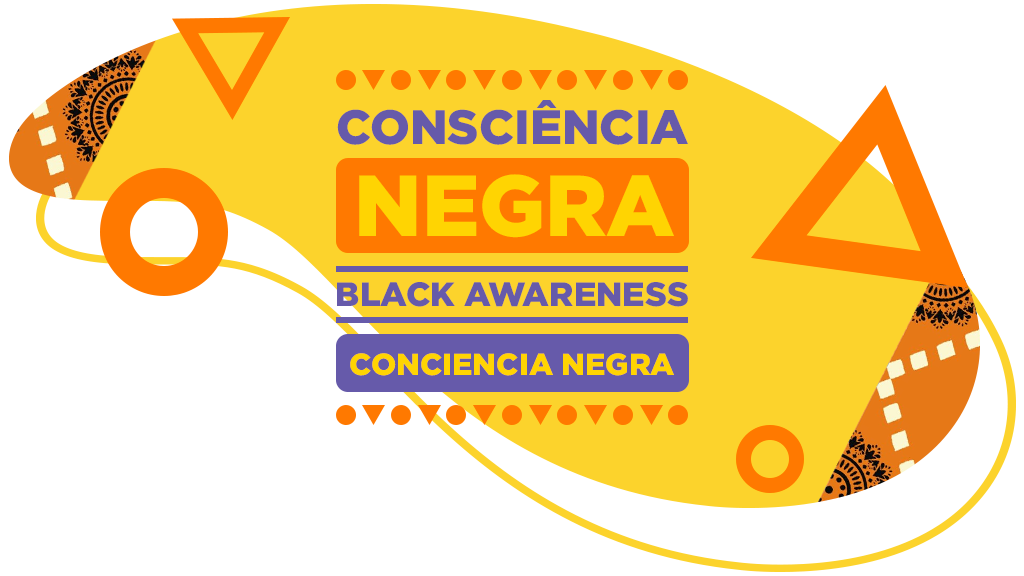How did Black Awareness Day come about?
Tomorrow, the 20th of November, Brazil celebrates “National Zumbi and Black Awareness Day.”
During a meeting in Salvador in 1987, activists of the Movimento Negro Unificado, or Unified Black Movement, selected the day of Zumbi dos Palmares’ death to be celebrated as Black Awareness Day. The day was chosen in order to remember the struggle of enslaved Black people who rebelled against the system of slavery.
The date was gradually gaining traction and it was only in 2003 that Black Awareness Day was finally recognized by the federal government. In 2013, the date was made official as “National Zumbi and Black Awareness Day.”
Source: EducaMaisBrasil
Data from the Brazilian Institute of Geography and Statistics show that 54% of the Brazilian population is Black and much of our culture, language, cuisine and customs come from the heritage of African people. In the United States, the Black population is also represented in all areas of culture.
For this reason, it is only fitting that we delve deeper into the history, reality, art, literature and the continued celebration of this very important origin in Brazil and in the world. To participate, we’ve compiled a list of books that you can read to celebrate Black awareness, on this day and any day of the year!
Featured are different styles, authors from different backgrounds, and many personal stories and perspectives!
“Books can be dangerous.
The best ones should be labeled
‘This could change your life’ ”
Helen Exley
Quarto de despejo (The Dumping Room) – Carolina Maria de Jesus
The diary of paper-picker Carolina Maria de Jesus tells the sad and cruel story of daily life in the favela. The simple but forceful language moves the reader with its realism and sensitive perspective as she describes what she saw, lived and felt in the years she lived in the Canindé community of São Paulo with three children.
She said that the favela was the city’s “dumping room,” where they threw everything they no longer wanted. The honest way that Carolina Maria wrote in her diary captivates us and holds us until the end of the book.
Olhos d’água (Eyes of water) – Conceição Evaristo
In Olhos d’água, Conceição Evaristo sets the focus of her interest in the Afro-Brazilian population, addressing, without words, the poverty and urban violence that affect it.
Conceição manages, in short stories, to give us a full story with a beginning, middle and end. The scenario presents our daily lives, and helps our imaginations to connect with history in just a few lines.
Raw reality, with a dose of poetry.
If Beale Street Could Talk – James Baldwin
Released in 1974, James Baldwin chronicles Tish’s efforts to prove the innocence of Fonny, her fiance, wrongfully imprisoned for the rape of a Puerto Rican woman. Convinced of her fiance’s honesty, Tish mobilizes her family and lawyers in an attempt to free him from prison.
The novel has the Harlem of the 1970s as a backdrop and reveals the uncertainties of the future, the despair, sadness and hopelessness brought about in the wake of an announced sentence.
Americanah – Chimamanda Ngozi Adichie
While Ifemelu and Obinze live their first love, Nigeria faces dark times under military rule. Ifemelu moves to the United States in search of alternatives to national universities paralyzed by successive strikes.
It is in this environment that she is faced for the first time with racial issues and with the difficulties of life as a Black, female immigrant. She then becomes a blogger, grows famous and returns to Nigeria fifteen years later.
Upon rediscovering her city and Obinze, she is able to understand the impact that each reality has had on their lives.
I Know Why the Caged Bird Sings – Maya Angelou
“I Know Why the Caged Bird Sings” is a book that reformulates autobiographical stories and produces a narrative that touches the reader in different ways.
Guided by Maya Angelou, we follow a childhood of racial segregation in the United States of the early 20th century. As if taking our hand and inviting us into her home, the author introduces us to her awakening as a woman aware of her humanity – and how she ended up becoming one of the most inspiring artists of her time.
Escravidão (Slavery) – Laurentino Gomes
Slavery is a work among three volumes of writer and journalist Laurentino Gomes, whose first volume was published in 2019 and the second in 2021. The third volume should be published in 2022, the year of the bicentenary of the Independence of Brazil.
Volumen I – From the first sub-basin of captives in Portugal to the death of Zumbi dos Palmares
Volume II – From the fiebre del gold in Minas Gerais to the arrival of the court of Dom João in Brazil
Volumen III – Will be published in 2022 (about the abolitionist movement)
Pequeno Manual Antirracista (A Little Anti-racist Handbook) – Djamila Ribeiro
In eleven short and powerful chapters, the author presents paths of reflection for those who want to deepen their perception of structural racist discrimination and assume responsibility for transforming the state of affairs.
Recognizing the roots and impact of racism can be paralyzing. After all, how do you face a monster of this size? Djamila Ribeiro argues that anti-racist practice is urgent and takes place in the most everyday attitudes. And even more: it’s a fight for everyone.
Now it’s your turn!
Do you have any recommendations for us? Have you read any of the books on the list? Let us know on our Instagram page!








